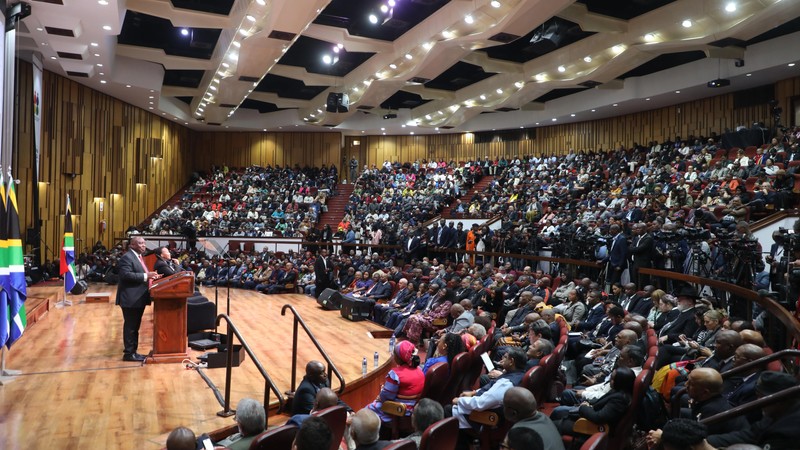GIWUSA slams National Dialogue as elite 'talk shop'
The General Industries Workers Union of South Africa (GIWUSA) has dismissed the National Dialogue convened at Unisa on August 15 -16 as an illegitimate “talk shop” that cannot resolve the country’s more profound crisis.
The union’s statement comes in the wake of a gathering that drew a range of participants, from self-styled civic leaders to a chorus of critics and government officials.
Mametlwe Sebei, President of General Industries Workers Union of SA said the National Dialogue cannot resolve the crisis of capitalism.
He argued that the platform was “masquerading as the assembly of the representatives of all sectors of South African Society” but in practice excluded core voices and was “widely boycotted by all main opposition parties, in and out of the GNU, many trade unions, community civics, and youth movements.”
He cast the event as “an empty spectacle” designed to create the illusion of engagement while preserving the political elite’s power over the process and the very system of monopoly capitalism that has brought our people to ruin.
The union tied its critique to both historical grievance and contemporary policy, insisting that the country’s problems are structural, not a matter of insufficient dialogue.
“The political contradictions and polarisation tearing South Africa apart are not the result of a lack of dialogue but are rooted in the objective class divisions of our society,” said Sebei.
“It contends that capitalism, defined here as private ownership of the economy and land concentrated in a wealthy minority, puts profit before people, pitting “the interests of the wealthy elite” against “the working class, who fight for survival, decent wages, and a dignified life.”
GIWUSA linked the country’s most wrenching crises to four decades of neoliberal policy.
“Since the crisis of capitalism began in the 1970s, the ruling class has responded with privatisation, austerity, and attacks on workers-all to maintain their wealth while the majority suffer,” read the statement, laying responsibility at the feet of policy choices shaped by capital interests.
The articulation of grievances is anchored in stark episodes that, according to GIWUSA, reveal the systemic nature of the problem.
Sebei referenced Marikana incident where 34 mineworkers were gunned down by police, as a “massacre” born from a choice of “profits over workers’ lives and extended that frame to issues like education funding and service delivery, noting protests such as #FeesMustFall and #OutsourcingMustFall as clashes arising from neoliberal policy rather than miscommunication.
“Today, even traditional support systems of the working-class communities and families are tearing apart because capitalism substitutes human relations with callous cash relations,” Sebei asserted that widening inequality is not a policy slip but a structural feature of the system.
“Reject dialogue that concedes to the existing order and pursue organised, collective action that can challenge capital and, eventually, alter the country’s political economy.”
The union contended that “the working class needs struggle, not talk shops,” and insisted that lasting change will come through mass mobilisation, strikes, and direct action-combined with a political program aimed at “the nationalisation of key industries under democratic worker control” and, ultimately, “a socialist orientation” as the only durable antidote to exploitation and inequality.
GIWUSA called on “workers, the unemployed, and all oppressed people” to join forces to demand a living wage, universal healthcare, education, and housing-an agenda that squares with a broader, if sharper, left-leaning critique of South Africa’s post-apartheid economy.
“The National Dialogue is a distraction. The real solution lies in the streets, in the workplaces, and in the organised power of the working class,” read the statement
thabo.makwakwa@inl.co.za
IOL Politics

